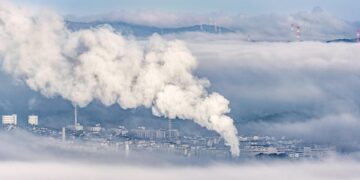The Impact of Climate Policy on Businesses
Climate change is one of the most pressing issues of our time, and as governments around the world implement policies to address this crisis, businesses are increasingly feeling the effects. From stricter emissions regulations to carbon pricing schemes, climate policy is shaping the future of business in profound ways.
Why Climate Policy Matters for Businesses
Climate policy is important for businesses for several reasons. Firstly, as the effects of climate change become more severe, consumers are becoming increasingly aware of the environmental impact of the products and services they use. This has led to a growing demand for sustainable and eco-friendly goods, forcing businesses to adapt or risk losing customers.
Additionally, governments are implementing regulations to curb greenhouse gas emissions and promote clean energy sources. Businesses that fail to comply with these regulations may face fines or other penalties, making it essential for companies to stay abreast of the latest climate policies and adjust their operations accordingly.
The Benefits of Climate-Friendly Business Practices
While adapting to climate policy may seem daunting, there are significant benefits for businesses that embrace sustainability. Not only can companies reduce their carbon footprint and contribute to a healthier planet, but they can also improve their bottom line by reducing energy costs, increasing efficiency, and attracting environmentally conscious consumers.
Furthermore, businesses that adopt sustainable practices are often seen as leaders in their industry, which can enhance their brand image and reputation. This can lead to increased customer loyalty and a competitive advantage in the marketplace.
Common Questions About Climate Policy and Business
1. How can businesses reduce their carbon footprint?
There are many ways businesses can reduce their carbon footprint, such as investing in renewable energy sources, improving energy efficiency, and reducing waste. Companies can also offset their emissions by purchasing carbon credits or participating in carbon offset programs.
2. What are the risks of not complying with climate regulations?
Businesses that fail to comply with climate regulations may face fines, legal action, or reputational damage. Additionally, companies that do not address their environmental impact may lose customers and face increased scrutiny from investors and stakeholders.
3. How can businesses stay informed about climate policy changes?
Businesses can stay informed about climate policy changes by monitoring government websites, attending industry conferences, and joining industry associations focused on sustainability. Companies can also work with consultants or advisors who specialize in climate policy to ensure they are up to date on the latest regulations.
The Future of Business in a Changing Climate
As climate change continues to accelerate, businesses will need to adapt to a rapidly changing landscape. This includes not only complying with new regulations and reducing their environmental impact, but also innovating new products and services that address the challenges of a warming planet.
Businesses that embrace sustainability and prioritize climate action will be well-positioned to thrive in the future, while those that fail to adapt may struggle to survive in an increasingly competitive and environmentally conscious marketplace.
Conclusion
Climate policy is shaping the future of business in significant ways, from driving consumer demand for sustainable products to imposing stricter regulations on greenhouse gas emissions. Businesses that embrace sustainability and prioritize climate action stand to benefit from increased efficiency, cost savings, and enhanced brand reputation, while those that ignore the changing landscape may face financial and reputational risks.
By staying informed about climate policy changes, implementing sustainable practices, and innovating new solutions to address climate challenges, businesses can not only survive but thrive in a changing climate.












